Following is the text of an interview conducted by PanARMENIAN.Net with Rep. Adam Schiff (D-CA) commenting on the resent election campaign and his position on issues vital for the Armenian-American community.
Q: For many years you’ve been struggling for Washington’s recognition of the Armenian Genocide. What are the chances for the adoption of Genocide Resolution by new Congress?
A: Passing this resolution and honoring the memory of 1.5 million Armenian men, women and children has been one of my top priorities since coming to Congress. Building a broad coalition of support is critically important as we look for opportunities to bring the Resolution to the floor for a vote. Although the desire for adoption of the Genocide Resolution is stronger on the Democratic side than on the Republican side, there will still be strong, bipartisan support for the resolution, regardless of which party is in the majority. We are seeking to gain votes every day, and my hope is to move the resolution forward as soon as we are confident that we have the votes we need to adopt the resolution. If the Resolution doesn’t come to the Floor during this session, I plan to reintroduce the resolution in the new Congress.
Q: In 2007, you stated in an interview with PanARMENIAN.Net that not only Turkish lobby and pro-Turkish congressmen but also the U.S. Administration hampered adoption of Genocide Resolution. What’s the situation at present? Did the Administration reconsider its position on the issue?
A: The U.S. has given in to Turkey’s bullying for far too long and efforts to recognize the victims of the genocide have fallen short. Although there is near unanimity among historians that the events of 1915-23 constitute genocide, the government of the modern Republic of Turkey steadfastly denies that the mass murders carried out by its predecessor was genocide and threatens any nation or group of nations that recognizes the genocide.
I was very disappointed in April when President Obama again did not use the term “genocide” to describe the events of 1915-23. I will continue urging him to stand with the ever-dwindling number of survivors, as well as the descendants of others, who survived the Armenian Genocide and continue to suffer the “double killing” of denial, by referring to it as a genocide.
Although Turkey won’t be pleased with U.S. recognition, we need to speak frankly with each other as allies. I will not rest until we have overcome Turkey’s threats and propaganda.
Q: What role does the Armenian Genocide Congressional Record Project as well as Capitol Hill screening of Genocide film ‘Aghet’ play in this struggle?
A: I started the Armenian Genocide Congressional Record Project as part of an ongoing effort to parallel H. Res. 252, the Congressional resolution I sponsored to recognize and commemorate the Genocide. The submissions contribute to the effort to raise awareness about the issue, and educate Members of Congress now and in the future on the necessity of recognizing the Genocide carried out by the Ottoman Empire from 1915 to 1923. I encourage survivors of the Genocide and their families from throughout the country to participate in the project by sending in the stories of what happened to their family during the Genocide.
I was honored to host the screening of ‘AGHET: A CENOCIDE’ in order to help educate my colleagues and their staffs about the first Genocide of the 20th Century. In the fight for recognition, we are armed only with the truth; but in the end, the truth will be victorious. I also sent a letter to PBS regarding the powerful, comprehensive documentary, urging the network to fulfill a great educational and public service by showing this film and bringing the story of the Armenian Genocide to the American people. This is the type of programming for which PBS was created, and ‘AGHET: A CENOCIDE’ is a film that every American should see.
Q: Can the Project promote President Obama’s recognition of Genocide in his next year’s April 24 address?
A:Yes, it is my hope that including in the Congressional Record the stories of individuals who survived the genocide we can help educate the Administration and Congress, and make the genocide a part of the historic record of our government.
While the Armenian Genocide has been recognized by more than 20 nations including Canada, Italy, Sweden, France, Argentina and Russia, as well as the European Parliament, it has not been formally recognized by the U.S. Congress or Administration in decades.
The President should take a stand. There are a couple of compelling reasons for President Obama to recognize the Genocide, which transcend party and political lines:
First, to be a moral force on issues like genocide, whether stopping Darfur or preventing future atrocities, we have to speak unequivocally about such occurrences – we cannot pick and choose which to recognize, as it undermines our moral authority. And second, as there are still survivors among us, there is a moral imperative that we recognize the Genocide in their life time.
Q: Attempting to prevent U.S. recognition of the Armenian Genocide, Turkey asserts that the recognition will hamper its rapprochement with Armenia. Are such statements well founded?
A: Some argue that the possible reconciliation between Armenia and Turkey is a reason to hold off on recognition. This misapprehended the nature of reconciliation, which can never find a sound basis in the denial of genocide, or silence when confronted by denial.
Almost from the moment that it signed the Protocols, the Turkish government gave every indication that it would not ratify or implement the agreement and sought to make resolution of the Nagorno-Karabakh issue a precondition for any action by the Turkish parliament. I had repeatedly warned that Turkey would attempt to use the protocols process as a means to prevent the Administration from using the word “genocide,” and to try to forestall consideration of a genocide resolution by the Congress. Linking the process of the protocols to the Armenian Genocide resolution actually encourages Turkey to not ratify them, since the Turks know that prolonging the process serves to provide opponents of the resolution with a continuing excuse to delay recognition of the Armenian Genocide. In any event, no nation should have to accept the falsification of history in exchange for peace.
Given Turkey’s recent behavior, Congress needs to reevaluate whether we should continue to dishonor the dead to placate Turkey. While many Americans remember Turkey’s refusal to allow coalition forces to enter Iraq from its territory in 2003, Ankara’s refusal to assist American forces has grown to embrace an agenda that is at odds with our own by cozying up to Iran and Hamas.
Q: Recently, Matthew Bryza’s nomination for the position of U.S. Ambassador to Azerbaijan was blocked. Can President Obama exercise his right and appoint the ambassador, bypassing the Senate?
A: President Obama can use the power of a recess appointment to appoint Mr. Bryza as Ambassador to Azerbaijan. Given the delicate nature of the Nagorno-Karabakh conflict and the importance of not sending the wrong signal to the Aliyev government, I would hope that the President would instead choose to work with the Senate to address the concerns of several of my friends in the other body who are champions of Armenia, namely Senators Boxer and Menendez.
Q: Can you please assess the situation in Karabakh conflict zone. What do you believe is the reason for Azerbaijan’s increased militaristic statements, constant subversive actions and ceasefire violations?
A: As a champion for modern Armenia and Nagorno-Karabakh, I have been a steadfast supporter of self-determination for the people of Artsakh, repeatedly pushing for economic assistance to the region. Providing a more hopeful future for the people of Armenia and Artsakh will continue to be one of my top priorities. As a member of the Foreign Operations and Related Programs subcommittee of the Appropriations Committee, I have fought for greater funding for Armenia and Karabakh, as well as tightening of Section 907 of the Freedom Support Act, which conditions security assistance to Azerbaijan. I am greatly concerned by continued Azeri war rhetoric, as well as Azeri acts of aggression along the Line of Contact that have resulted in the deaths of Karabakh military personnel. Recently, I worked with the Congressional Research Service to identify funding shortfalls to Nagorno Karabakh for badly needed economic development. I am following up on this issue with the State Department and USAID and will work to ensure that Karabakh receives the assistance that Congress intends.
Marina Ananikyan / PanARMENIAN News

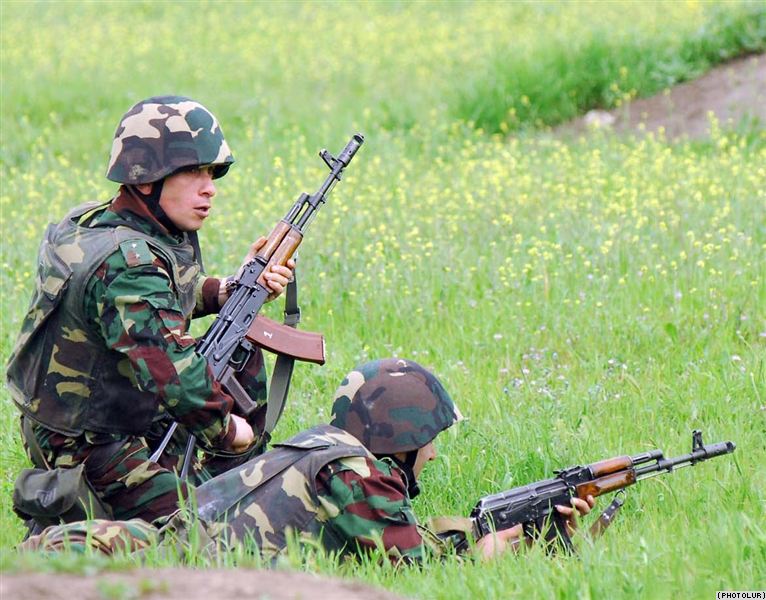
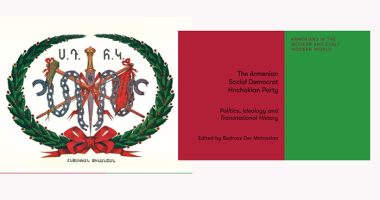
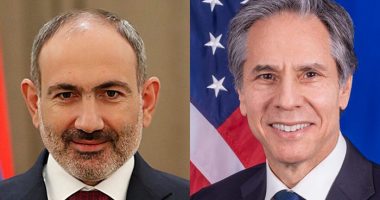
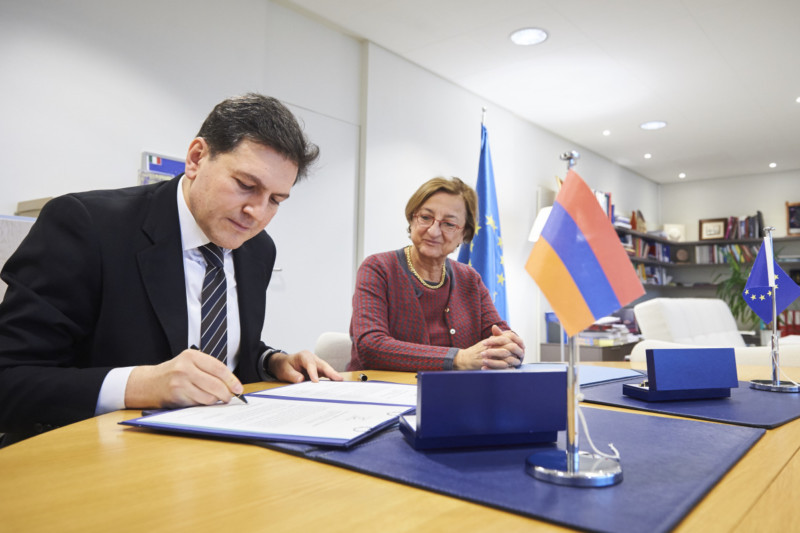
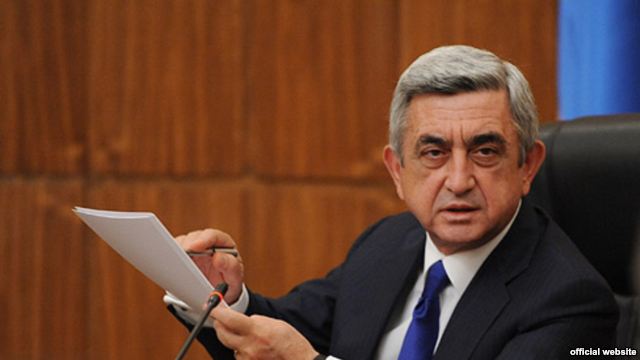




1 comment
My father, Mardiros Karian, was born in Turkish Armenia in 1904. His father, Haroutune was killed by the Turks in a group of men from his town by drowning in a nearby river. My father’s sister was also killed. During the period of the Armenian Genocide, my father tried to elude the Turks by way of ridges of Mt. Ararat where he lived in a 40 room stone house. He fell down and broke both knee caps. Ironically, he was rescued by the wife of the Turkish sultan (possibly Mehmed VI-the last sulton) and raised as a prince. However, Mardiros was then rescued by his cousin Boghos Boghosian who sponsored his going to the US to live. Obviously, I am interested in any history surrounding these events that better explains my family tree that was so damaged by the genocide.